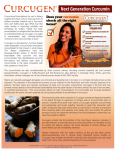NIU’s Global Round-up: Direct-selling challenges in China, CBD in Germany, and more

Europe
CBD’s Novel Food status reiterated by German high courts
A ruling by the North Rhine-Westphalia Senate reinforces a decision by another German court late last year that cannabidiol (CBD) is indeed a novel food.
An unnamed defendant had appealed a ruling by the Düsseldorf Administrative Court, which extended to accusations that the Commission had changed its assessment and they were entitled to at least a transition period to exhaust stocks.
However, the Senate disagreed, arguing that the defendant should have known about the unclear position of CBD and protection of consumers takes precedence over other considerations.
The Senate added that even if the starting material was not novel, there must be evidence of safe consumption for the final product as well to exclude novel food status.
For more on this, please click HERE.
Asia
Amid tough market environment direct-selling firms in China look to new retail channels
With declines reported for the direct-selling industry in China as the regulatory framework tightens and consumers’ perception becomes less favorable, many firms are now adopting new sales models.
Some firms have reportedly turned their focus to cross-border e-commerce (CBEC) and social commerce.
“The direct-selling industry has been declining in the past few years. The current public discourse surrounding the direct-selling enterprises are not very positive too,” said Charles Diao, regulatory manager at US-China Health Products Association.
For more on this, please click HERE.
LATAM
Chilean currants may offer microbiome benefits
Chilean and Spanish scientists reported that polyphenol-rich Chilean currants (Ribes magellanicum and Ribes punctatum) may boost the levels of gut bacteria linked to anti-inflammatory effects.
According to data from simulated colon experiments, the currants led to increases in Akkermansia muciniphila and Faecalibacterium prausnitzii.
But no increases in Lactobacillus spp. and Bifidobacterium spp. were reported.
“To the best of our knowledge, this is the first study describing the modulation of gut microbiota and its metabolites by Chilean berries,” wrote scientists from the Universidad de Talca (Chile) and Universidad Europea de Madrid (Spain) in Food Research International.
“Our results suggest that polyphenols from R. punctatum and R. magellanicum may modulate both bacterial metabolism and some selected gut beneficial bacteria under simulated conditions,” they wrote.
“Therefore, Chilean currants might be useful as supplements to maintain a healthy colon; however, further in vivo studies are needed to confirm their effect and their mechanisms.”
For more on this story, please click HERE.


















